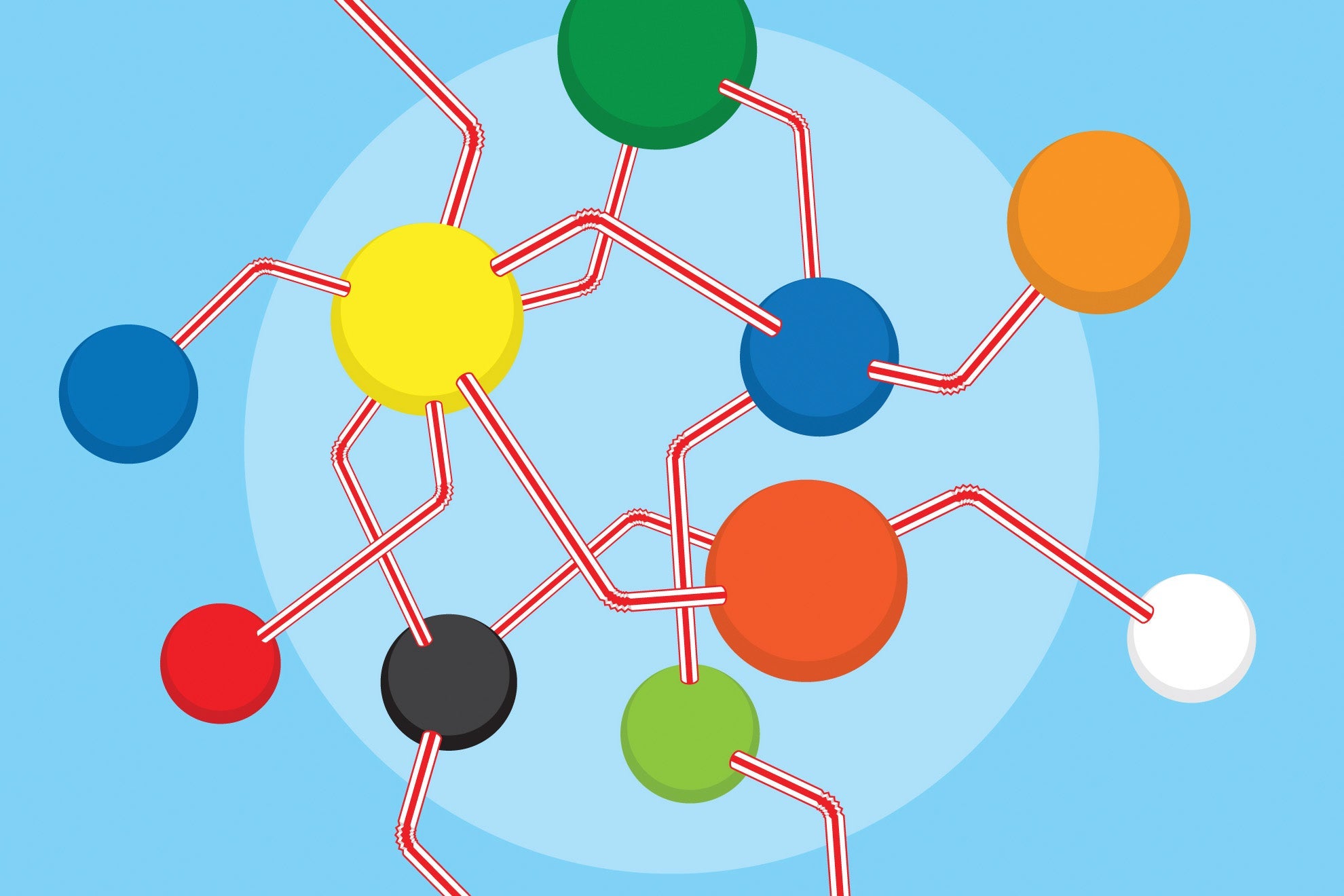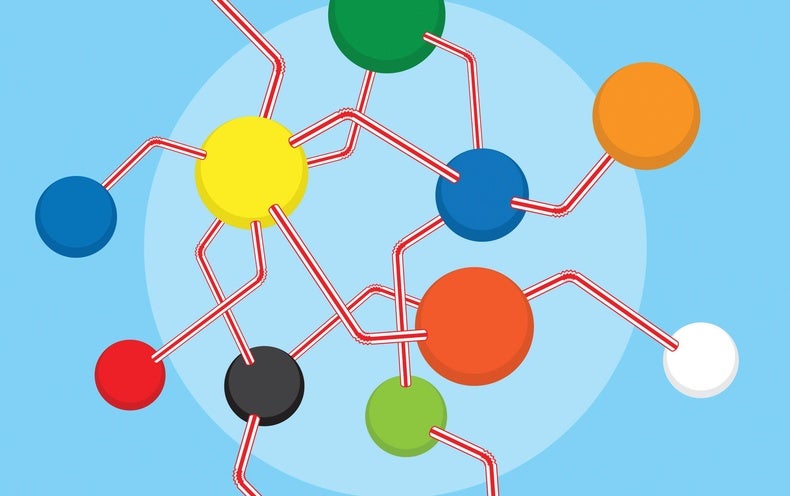
Soda bottles, bitter cream containers, disposable cutlery – these plastics (and lots of others) often arrive at recycling crops blended collectively in the identical bin. However as a result of they’re made of various molecular constructing blocks, referred to as monomers, they should be sorted into totally different streams earlier than they are often melted to make new merchandise.
“Till a couple of 12 months in the past, everybody thought the one factor you can do was take a bit of plastic, break it down again right into a monomer after which reshape it,” says Sanat Kumar, a chemical engineer at Columbia College. “And now we have give you a special approach to do it.” His group has developed a course of that enables various kinds of plastic to be recycled collectively. Their findings, lately reported in nature, It may give new life to many objects that in any other case find yourself in landfills.
An alarmingly small fraction of our plastic waste is recycled, and the manufacturing of recent plastic – produced from fossil fuels – continues to extend. The worsening scenario has prompted scientists to seek for new options to age-old recycling issues, together with the issue of recycling blended plastics. However they ran right into a basic chemical hurdle: When various kinds of plastics are melted collectively, their totally different monomers are likely to separate from one another like oil and water.
The brand new course of solves this downside by including chemical substances referred to as common dynamic linkers to the combo. Simply as cleaning soap combines oil and water, these cross-links (when utilized underneath warmth) type covalent molecular bonds that bind the varied monomers collectively. This course of produces polymers that may retain a number of the useful properties of every plastic part, comparable to stopping the passage of oxygen or ultraviolet radiation. These supplies can then be melted and remade time and again as a result of the cross-linkers can break their bonds and reshape them.
“This chemistry is a extremely vital step,” says Julie Rohrer, a chemical engineer on the College of Washington who works in plastics recycling and was not a part of the examine. “They’re proving that this was industrially treatable, which may be very thrilling.”
Researchers hope this know-how will finally assist reuse extra plastic waste, and Kumar says the method consumes much less power than breaking down plastic into its unique monomers, however it’s not low-cost sufficient for use on a big scale in current recycling services. Nevertheless, demonstrating its success may result in profitable markets for cheaper recycled plastics, which Kumar says can be one approach to finally assist recyclers tackle the plastic waste disaster. “The plastic downside is large, and you’ll have to search for a number of options,” he says.
